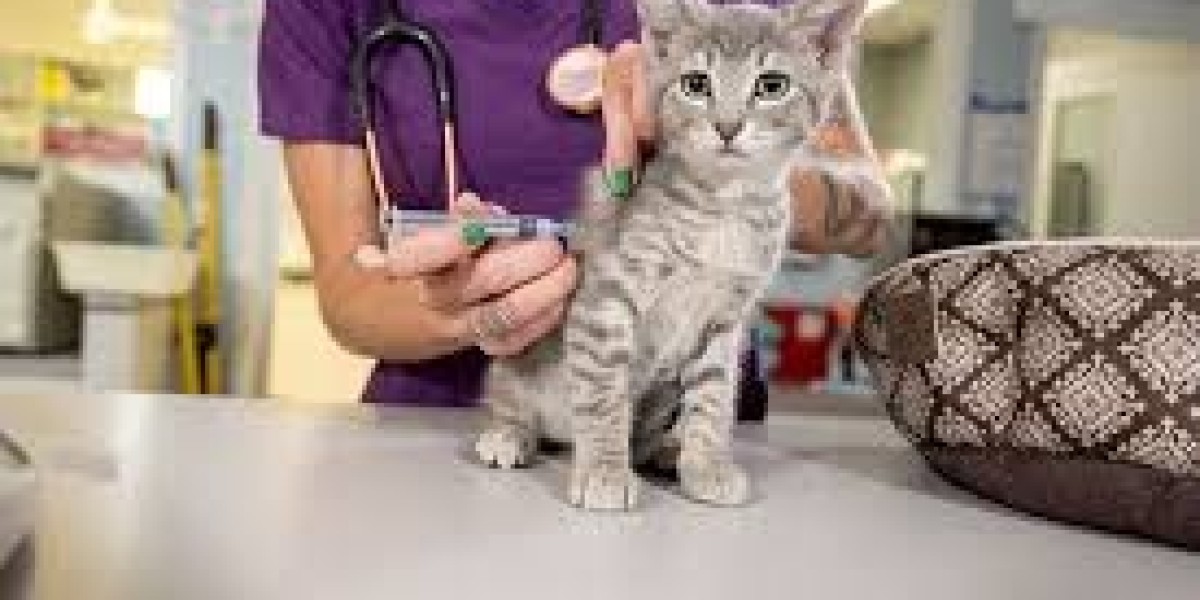The global veterinary vaccines market is witnessing steady expansion, driven by growing awareness around animal health, food safety, and preventive healthcare. As the world becomes increasingly concerned about the spread of infectious diseases in both livestock and companion animals, veterinary vaccination is emerging as a critical solution. The veterinary vaccines market is responding with advanced technologies, broader disease coverage, and increased investment in research and development to meet global needs.
With the intensification of animal farming, increased pet ownership, and the threat of zoonotic diseases, vaccines are playing a vital role in protecting animal populations, ensuring public health, and supporting sustainable agricultural practices. The market is set to expand further as innovation, regulation, and demand align across developed and developing regions.
Increasing Need for Preventive Animal Healthcare
Preventive healthcare is at the forefront of veterinary practices today. Rather than relying solely on treatments after an outbreak occurs, animal owners and livestock producers are turning to vaccines to proactively protect animals from infections. This preventive approach reduces disease risk, minimizes mortality rates, and enhances the overall productivity and longevity of animals.
Veterinary vaccines help control a wide range of diseases such as rabies, foot-and-mouth disease, bovine respiratory disease, Newcastle disease, and classical swine fever. They not only improve the health and welfare of animals but also prevent economic losses due to decreased meat, milk, and egg production.
Livestock Sector Driving Market Demand
The growing global population has led to increased demand for animal-derived food products such as meat, milk, and eggs. To meet this demand, livestock production has scaled up significantly, particularly in regions like Asia-Pacific, Latin America, and parts of Africa. However, this intensification of farming practices also raises the risk of disease transmission and outbreaks.
Veterinary vaccines are essential in maintaining herd health and productivity in these high-density farming environments. Governments and agricultural organizations are promoting mass vaccination programs to prevent economically devastating diseases and ensure food security. As a result, the livestock segment is a key driver in the veterinary vaccines market, accounting for a substantial share of global revenues.
Pet Ownership and Companion Animal Health Boosting Growth
In addition to livestock, the companion animal segment is seeing notable growth in vaccine adoption. With the rise in pet ownership globally—especially in urban regions—pet health has become a high priority for households. Pet parents are increasingly opting for regular vaccination schedules to protect their dogs, cats, and other animals from preventable diseases such as parvovirus, distemper, rabies, and feline leukemia.
Veterinary clinics, pet wellness programs, and animal shelters are all encouraging immunization as part of routine care. This rising awareness and willingness to invest in companion animal health are contributing to the continued expansion of the veterinary vaccines market.
Technological Innovations Advancing the Market
Ongoing research and technological progress are enhancing the efficacy and scope of veterinary vaccines. Biotechnology and genomic tools are enabling the development of next-generation vaccines that are safer, more effective, and easier to administer.
Key innovations include:
Recombinant and subunit vaccines for precise disease targeting
mRNA-based vaccines offering rapid response capabilities to emerging diseases
Thermostable vaccines that improve distribution in tropical and remote regions
Multivalent vaccines that offer protection against multiple pathogens with a single dose
Needle-free and oral delivery systems to improve convenience and reduce animal stress
These advancements are improving vaccination outcomes and are expected to significantly drive market growth over the next decade.
Regulatory Support and Disease Eradication Campaigns
Governments worldwide are implementing policies and campaigns to promote animal vaccination as part of broader public health and food safety initiatives. Programs aimed at eradicating zoonotic diseases—those that can be transmitted from animals to humans—are receiving particular attention, with vaccines being a key tool in these efforts.
For example, national and international campaigns targeting rabies elimination, foot-and-mouth disease control, and avian influenza surveillance have led to higher vaccine adoption. Support from regulatory agencies and international organizations is providing the veterinary vaccines market with both funding and strategic direction to expand further.
Regional Trends and Growth Opportunities
North America and Europe continue to lead in vaccine innovation and adoption, supported by established veterinary healthcare systems and strong regulations.
Asia-Pacific is emerging as the fastest-growing market due to rising livestock production, government support, and increasing consumer awareness.
Latin America and Africa are also seeing growth driven by export demands, livestock modernization, and regional disease control programs.
These regional trends point to a global alignment toward better animal health practices and broader vaccine use.
The Future Outlook of the Veterinary Vaccines Market
The future of the veterinary vaccines market looks promising, with several key trends likely to shape its trajectory:
Integration of digital tools for vaccine tracking and animal health monitoring
Expansion of public-private partnerships to develop and distribute affordable vaccines
Increased investment in biotech-based vaccine research
Focus on sustainability and antibiotic reduction in food production systems
As global challenges like food security, zoonotic threats, and climate-related disease emergence continue to evolve, the veterinary vaccines market will play a central role in building resilient animal health systems.
In summary, the veterinary vaccines market is positioned for robust growth as it adapts to rising global needs for disease prevention, sustainable agriculture, and comprehensive animal healthcare. With continuous innovation and strong stakeholder support, vaccines are paving the way toward a healthier, safer future for both animals and humans.






